Blockchain applications in healthcare practice help improve patient outcomes through more efficient processes, more effective research, and more robust data security.
Patient histories and other medical data are sensitive information that should be kept safe and secure. However, the healthcare industry has been victim to severe data breaches, which lead to the theft of pertinent information, including banking details or health and genomic testing records.
These issues have been costly to the health sector, resulting in a lack of trust, lawsuits, inefficient practices, and rising hospital management costs over the years.
These challenges highlighted the need for excellent proficiency and modernization within the healthcare industry to enable doctors, patients, and related providers to share pertinent information quickly and safely.
Blockchain, the technology that came to the spotlight in 2008 as a public transaction ledger for the cryptocurrency bitcoin, has made people aware of its many other advantages and applications in different sectors over time.
This article explains how blockchain’s decentralized, incorruptible and transparent nature is being used to secure patient data and several applications in healthcare.
What is Blockchain Technology?
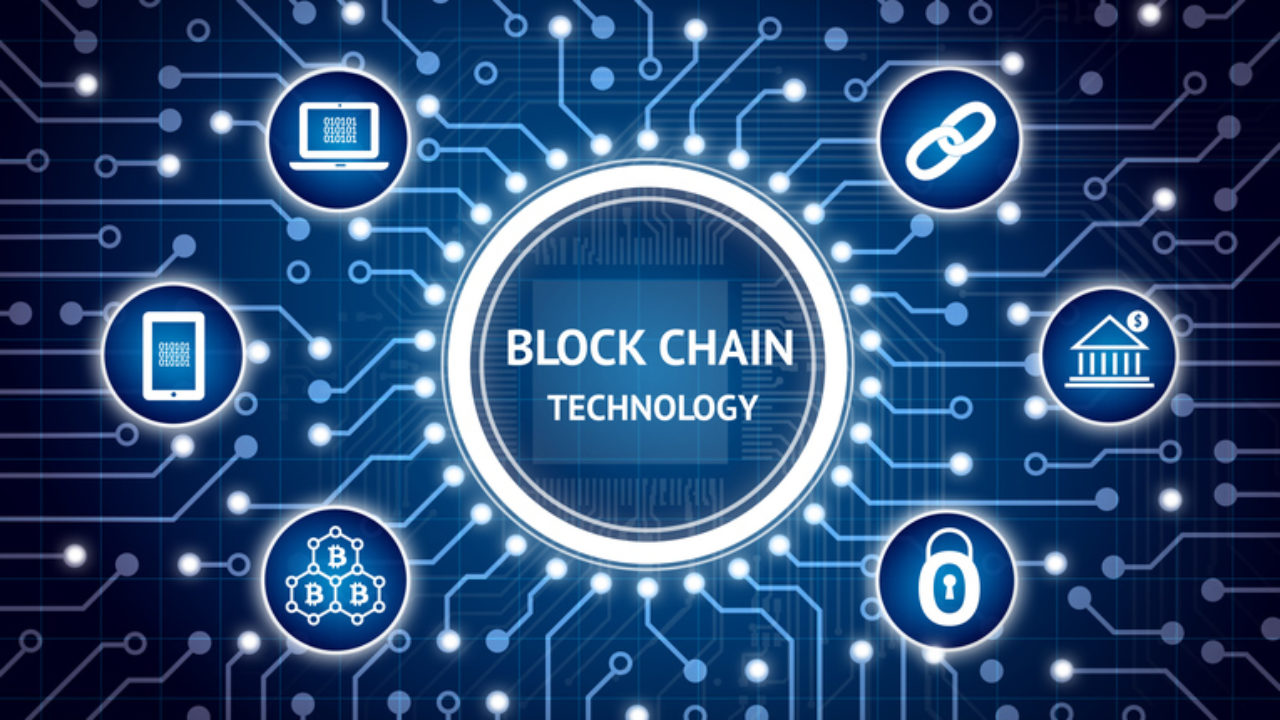
Blockchain is a digital database distributed among several noses of a network of computers used to store information. The information is collected in groups called blocks, and the chain of data they form is called a blockchain.
The information kept using this record-keeping technology isn’t stored in a single centralized database. Still, instead, it’s decentralized, meaning it’s spread over a vast network or even geographical area.
This makes it highly secure and impossible for anyone to forge or change data in the system. The main benefit of blockchain technology is that it stores digital information securely, so it can’t be hacked, altered, deleted, or compromised.
The healthcare industry has witnessed a significant revolution since the introduction of this technical data solution in digital health.
With the global spending on blockchain estimated to reach $19 billion by 2024, it’s no wonder that terms like blockchain in healthcare, crypto medical, and healthcare blockchains are increasing.
How is Blockchain Used in Healthcare?
Healthcare providers can use blockchain networks to preserve and exchange patient data between hospitals, pharmacies, diagnostic laboratories, and physicians.
When used correctly, healthcare workers can pinpoint any severe or dangerous mistakes in real-time, thereby improving the performance, transparency, and security of sharing medical data between service providers.

Some specific uses would include:
Seamless Switching of Patients Between Providers: Patient information and other health data stored on the blockchain can easily be shared with other organizations using shareable private keys.
Faster, Cheaper, Better Patient Care: Healthcare providers can create a single system where they can constantly store, update and share health records to facilitate faster and more secure retrieval while avoiding miscommunication and innumerable mistakes between professionals handling the same patient.
Interoperable Electronic Health Records: Service providers can use blockchain to create a single transaction layer through which they can submit and share data using a single secure system. They could also develop encrypted links for storing information, such as radiographic images.
Importance of Blockchains in Healthcare
Investment in healthcare blockchain applications remains a fantastic idea as all players involved, in one way or another, stand to benefit.
Since blockchain-based solutions avail secure encryption techniques that protect the integrity of corporate and individual information through smart contracts or tokenization, among the tangible benefits to stakeholders.
Benefits to Healthcare Organizations
Healthcare organizations will find blockchain useful in several areas. Blockchain will secure patients’ medical records in electronic health records (EHRs) in decentralized systems that can’t be hacked or tampered with.
Hospitals will also make faster treatment decisions since all their patient data will be available in a single system that’s open 24/7. Easily accessible data via blockchain will also fast-track the issuance of workers’ medical credentials. Here are some benefits listed below:
#1. Benefits to Patients
Patients value the security of their sensitive medical data, and blockchain gives them ownership of their medical records. As a result, anyone interested in accessing a patient’s data must get their permission.
Blockchain provides tools like consensus mechanisms meaning that no one but the patient owns their information.
Blockchain-enabled data security also applies to wearable devices through which patients transmit information to medical personnel in a secure manner. Patients could also participate in medical research and monetize their experience through tokenization.
#2. Benefits to Pharmaceuticals
As medical research expands, blockchain enables pharmaceutical companies to attract more patients to get involved in clinical trials for new medications.
Blockchain’s immutable nature enables participants to share information about drugs and similar trials in a reliable and verifiable manner. Moreover, blockchain enables manufacturers to detect counterfeit medicines effortlessly.
#3. Benefits to Insurance Companies
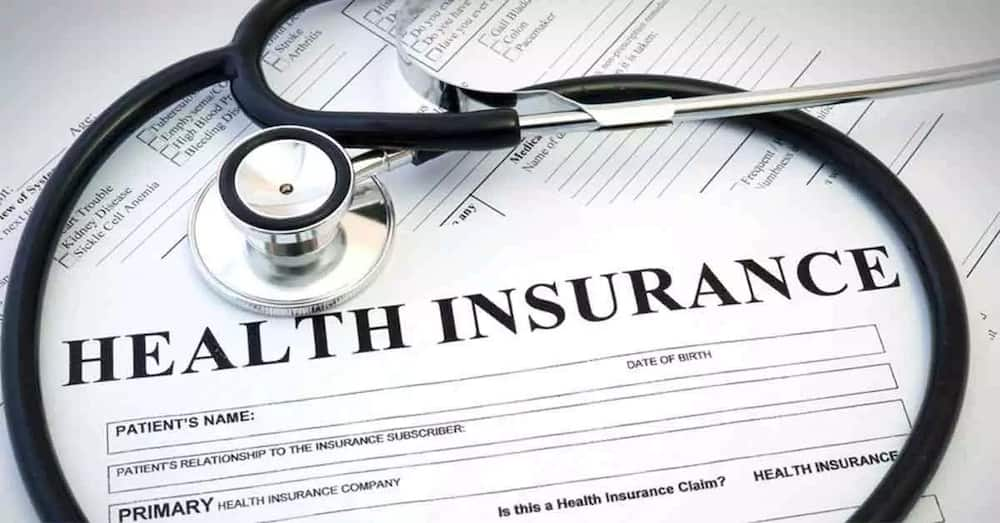
Blockchain technology enables faster data transfer between hospitals and medical insurance providers, meaning patients can receive confirmations faster.
Most importantly, insurance companies can implement smart contracts that guarantee the safety and convenience of the data they use.
Blockchain Applications in Healthcare
The best way that blockchain is helping medicine is by defeating the most significant risks in the healthcare industry by enhancing cyber security and increasing transparency.
This technology is helping fast-track operations by automating most of them, thereby helping save costs for patients and healthcare providers.
Let’s now dig deeper into some applications that are helping to improve medical services.
Patient Data Management
Patient medical data management is blockchain technology’s most critical use case example. Anyone visiting a hospital must be sure that the information they hand over, like credit card information or social security number, is secured.
A healthcare provider using blockchain-enabled encryption is the only guarantee that hackers won’t get access to such pertinent personal details.

Blockchain-based healthcare systems are also safe storage places for personal healthcare data that include intimate details of patients’ lives that shouldn’t be open to any prying eyes apart from a doctor’s.
The technology offers medical practitioners a safe environment where electronic health records can be collected using IoT devices and transferred securely through devices that are blockchain compatible. Most importantly, patients can decide who, apart from their doctor, can access their medical data.
Medical Data Security Assurance
Pharmaceutical companies invest much time and financial resources in drug research and development. However, most don’t have a secure way to keep their drug formulas and trade secrets under lock and key.
Cases abound where such online stores of valuable data get leaked to competitors, and the companies lose a considerable amount of their market share quickly.
Blockchain enables organizations to use encryption to store their medical data in an unreadable manner across several devices.
This ensures that no unauthorized person can access the information or no single party can unilaterally decide to decrypt, alter or transfer any information across different channels.
Improving Communication between Providers and Patients
Blockchain technology offers a decentralized solution by ensuring that patient information is stored over a database spread over a network of nodes.
This means that every time the data gets updated by one node, the information is updated across the network, simplifying the process through which updated information gets shared between doctors and other healthcare practitioners.
All patient information stored on a blockchain remains up-to-date, legitimate, verifiable, and time-stamped. As a result, healthcare service providers can quickly and easily review and act on the available information, especially when dealing with medical emergencies.
Moreover, clinicians will find it easier to complete diagnoses and create individualized treatment programs faster.
Genomic Data Protection
As more companies join the business of delivering DNA sequencing to individuals, the theft of genomic data has become a burning issue as it becomes a part of routine clinical practice.
Stakeholders can save themselves the risk involved by employing blockchain technology to create a critical barrier that helps them achieve a solution to data integrity and ownership.
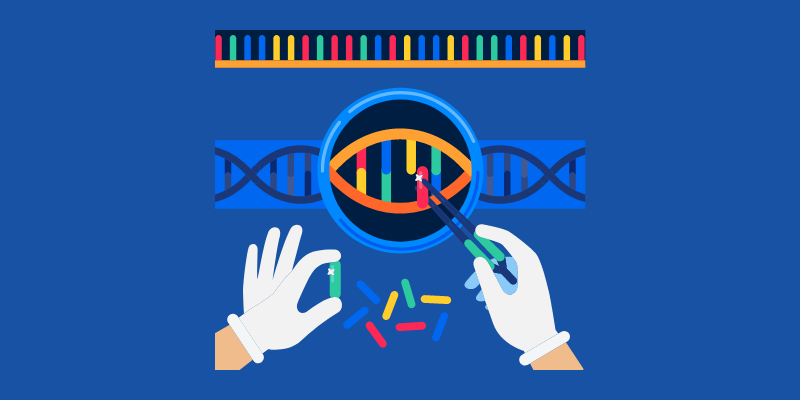
To overcome challenges associated with storing vast amounts of data online, practitioners are developing private blockchain networks specifically for storing genomic variants and reference-aligned data on-chain.
Such blockchains may also have the ability to offer database indexing using add-on tools that facilitate rapid access and data analysis.
Moreover, blockchain enables practitioners to monetize their data via an online marketplace for scientists looking for genomic data for research purposes, while the absence of go-betweens means greater profits.
Smart Contracts for Insurance and Supply Chain Settlements
Medical device manufacturers, pharmaceutical companies, insurers, and other healthcare service wholesalers use blockchain-based systems.
These systems enable consumers to authenticate the identities of organizations, contracts, and tract transactional details for their goods, services, and payment details for settlement.
This form of supply chain management enables trading partners and insurance providers of healthcare providers to operate entirely on digitalized and automated contract terms.
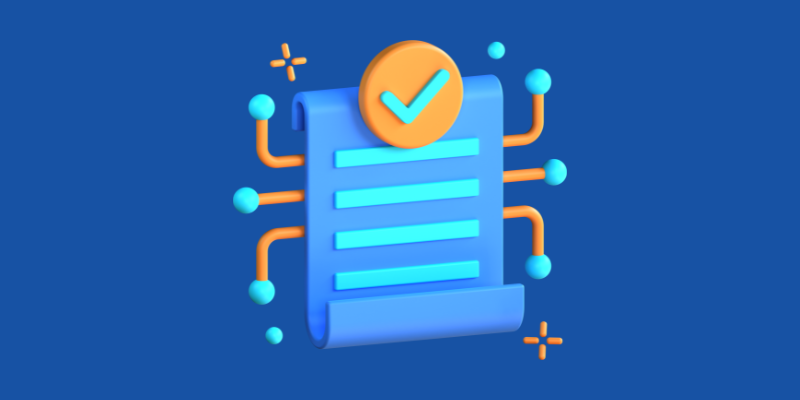
Rather than every player presenting with their individualized paper-based contracts, industry players can now reduce the time spent resolving disputes about payment chargeback claims for medical supplies and equipment by using smart contracts.
The digitalized smart contracts are designed with codes within the blockchain having specific terms that must be achieved, and once that happens, the contracts are automatically implemented.
Healthcare Transactions Control
Depending on their location, hospitals and specialized clinics deal with scores of patient remittances and claims 24/7, besides sending internal requests for overdue patient payments.
In the past, this opened a floodgate for all kinds of mischief by rogue staffers and highly skilled hackers whenever they access this kind of data.
The use of blockchain technology can streamline most of these processes to minimize claim denials and reduce payment concerns.
Since all updates on the database are seen in real-time across the network of users, including all stakeholders, any wrong entries that could lead to underpayments are reported immediately, meaning there’s no room for human errors or time delays.
Drug Supply Chain Counterfeit Management
It’s estimated that at least 10% of all drugs in the global supply chain are counterfeits, costing the drug market up to $200 billion annually. This represents a worrying trend for drug manufacturers, especially for patients who don’t get the right drugs to treat potentially life-threatening conditions.
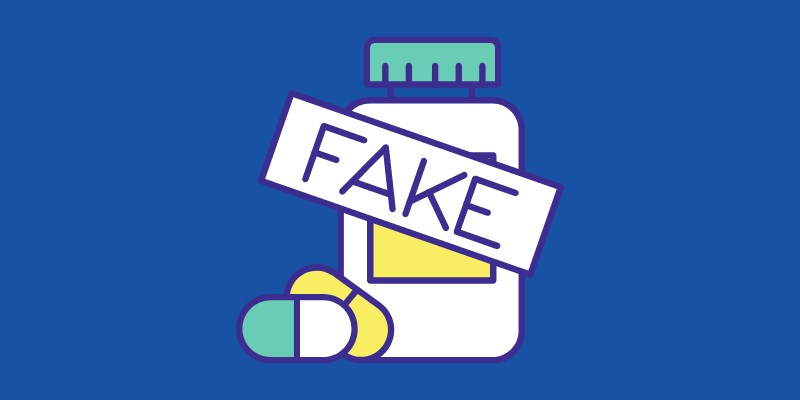
Implementing blockchain in the drug supply chain ensures that all transactions are time-stamped and immutable. This makes it easy to track and identify fraudulent drugs and drug transactions and flag them before they reach consumers.
Blockchain can also be used to implement drug traceability in terms of inventory management as well as the life cycle of drugs to ensure expired drugs are promptly removed from the shelves.
Tracking Medical Credentials
Patients worldwide need to be confident that the doctor treating them is truly qualified, their credentials are verifiable, where they have worked in the past, and their experience level.
Verifying medical credentials is one of the use cases of blockchain in healthcare. This technology can store all healthcare provider information in a single database.
Moreover, the blockchain will help in verifying the authenticity of these credentials. Plus, institutions hiring any level of medical workers need a foolproof method to check all the credentials presented by employment candidates without excessive bureaucracy.
Just like blockchain is being used to track the provenance of medical goods and equipment, it comes in handy when following the qualification and experience of medical practitioners.
Trusted healthcare organizations and medical institutions should be able to log into a dedicated blockchain and verify the credentials of their staff members. This will, in turn, help to streamline the process of hiring healthcare workers since their credentials can be confirmed at the click of a button.
Integration with Wearable IoT Devices
One of the most remarkable capabilities of blockchain innovations is how it can be used with wearable internet of things (IoT) devices. It allows for better health records monitoring by both patients and doctors.
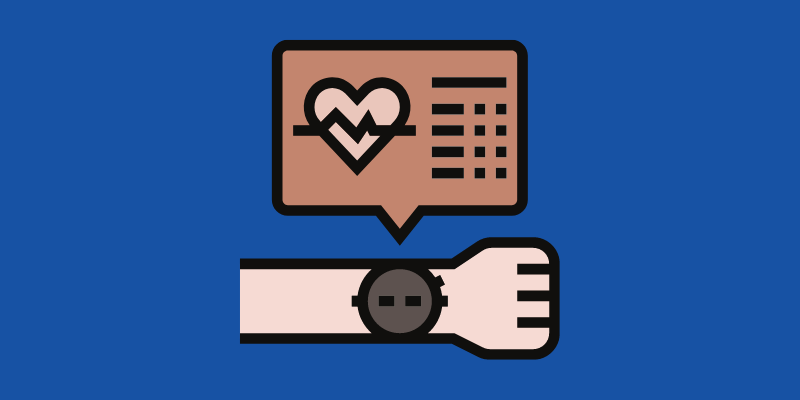
Blockchain can provide an easily-authenticated, secure platform for integrating data contained within wearables such as fitness, health, or activity tracker devices.
The doctors, like the patients, can reach this secured, regularly updated data that allows more easily tracking of the changes or patients’ progress.
Thus, blockchain healthcare app development should be on the top as the usage of wearable devices is constantly increasing.
Challenges of Implementing Blockchain in Healthcare
With all its promises and potential for good, blockchain in healthcare is still in its infancy, and applying the technology is still facing a few challenges. Among the most prominent ones include the following:
#1. Lack of Technical Knowledge
It’s an open secret that most healthcare practitioners are yet to acquire blockchain-specific software and hardware. Nonetheless, most users are still not yet acquainted with the workings of the technology and how it works.
Most people still associate blockchain primarily with cryptocurrencies, and, as a result, some are still skeptical about its application in their field.
For institutions to enjoy the benefits of blockchain in healthcare, service providers must be deliberate in acquiring these technologies and training their workers on implementing them.
Moreover, those implementing blockchain in healthcare must innovate ways to introduce changes without putting extra work on the shoulders of already overburdened healthcare workers.
#2. Reluctance to Adopt Paperless Methods
Most doctors and clinicians got so used to paper records that they still prefer their medical records to be kept using the old filing systems. Medicine shops and patients who don’t know better still demand paper works for their handy purposes.
Doctors must be educated on the use of blockchain, especially its benefits in automating file records and its potential for collaborative practices with other practitioners and service providers.
All organizations involved in medical research and patient care must be brought on board and willing to adopt what the new technology demands.
Most importantly, developers must create a way for blockchain to support large data files like CAT scans and MRI images into a single transaction. Healthcare organizations must also develop encoded libraries and backend depositories to house large files.
#3. Lack of Government Participation
Government-owned hospitals are the majority, but governments are still aloof when adopting new technologies.
There’s fear of the unknown since blockchain’s nature of decentralization means that no third party or central authority will be making decisions.
Also, since it’s still in its embryonic stages, the lack of standardization within the industry could pose a challenge to its adoption, thereby reducing the opportunities to harness its full capability.
Author’s Note
We’ve only managed to scratch the surface by highlighting a few use cases of blockchain in healthcare, and the technology still has much more potential.
Despite the emerging difficulties surrounding blockchain technology, the benefits far outweigh the challenges. Healthcare service providers will do well to consider its implementation, as it’s the only viable way to solve the current data security problems and improve the quality of medical care and research.
Adopting blockchain in healthcare and using its applications is projected to drive medical practice to higher levels and improve patient outcomes in the long run.
Next, you can check out the best healthcare CRM solutions.
Si quiere puede hacernos una donación por el trabajo que hacemos, lo apreciaremos mucho.
Direcciones de Billetera:
- BTC: 14xsuQRtT3Abek4zgDWZxJXs9VRdwxyPUS
- USDT: TQmV9FyrcpeaZMro3M1yeEHnNjv7xKZDNe
- BNB: 0x2fdb9034507b6d505d351a6f59d877040d0edb0f
- DOGE: D5SZesmFQGYVkE5trYYLF8hNPBgXgYcmrx
También puede seguirnos en nuestras Redes sociales para mantenerse al tanto de los últimos post de la web:
- Telegram
Disclaimer: En Cryptoshitcompra.com no nos hacemos responsables de ninguna inversión de ningún visitante, nosotros simplemente damos información sobre Tokens, juegos NFT y criptomonedas, no recomendamos inversiones


